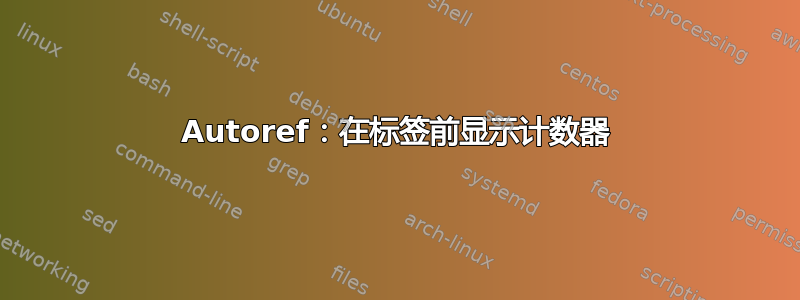
这可能看起来很奇怪,但它是特定于文化的。是否可以以某种方式更改 autoref 以呈现“1 Figure”而不是“Figure 1”?
答案1
作为不同类型浮点数(图形、表格、算法等)的通用解决方案,您可以\autoref使用数字 from\ref后跟浮点数名称(不带数字)来重新定义 from \nameCref(由包提供cleveref)。如果您还想更改标题,那么您可以使用包声明自定义格式caption。
梅威瑟:
\documentclass{article}
\usepackage{caption}
\DeclareCaptionLabelFormat{switched}{#2 #1}
\captionsetup{labelformat=switched}
\usepackage{hyperref}
\usepackage{cleveref}
\renewcommand{\autoref}[1]{\hyperref[#1]{\ref*{#1} \nameCref{#1}}}
\begin{document}
\begin{figure}
\centering
\fbox{this is a figure}
\caption{a caption}
\label{fig:example}
\end{figure}
See \autoref{fig:example} for an example.
\end{document}
结果:
答案2
我在这里找到了这个主题: 如果参数以 # 开头,则将其吞噬
我对其进行了修改,以便为您提供所需的结果。
代码如下:
\makeatletter
% this is found in latex.ltx:
% \def\@car#1#2\@nil{#1}
\def\iffirsttoken#1#2{%
% define \@first@token to be the once expanded \@car of the first argument
% i.e. the first token or balanced group:
\expandafter\def\expandafter\@first@token\expandafter{\@car#1\@nil}%
% test if the expansion of \@first@token is the same as #2:
\expandafter\ifx\@first@token#2\relax
\expandafter\@firstoftwo
\else
\expandafter\@secondoftwo
\fi
}
\usepackage{hyperref}
\let\oldhref\autoref
\renewcommand{\autoref}[1]{%
%\oldhref{#1}%
\iffirsttoken{#1}{t}{~\ref{#1} Table}%
}
并且您的表格(仅它们)必须以字母 t 作为其标签的首字母......
测试一下...您可以扩展图形等的代码
編輯 MWE:
\documentclass[a4paper,10pt]{article}
\usepackage[utf8]{inputenc}
\usepackage{tikz}
\makeatletter
% this is found in latex.ltx:
% \def\@car#1#2\@nil{#1}
\def\iffirsttoken#1#2{%
% define \@first@token to be the once expanded \@car of the first argument
% i.e. the first token or balanced group:
\expandafter\def\expandafter\@first@token\expandafter{\@car#1\@nil}%
% test if the expansion of \@first@token is the same as #2:
\expandafter\ifx\@first@token#2\relax
\expandafter\@firstoftwo
\else
\expandafter\@secondoftwo
\fi
}
\usepackage{hyperref}
\let\oldhref\autoref
\renewcommand{\autoref}[1]{%
%\oldhref{#1}%
\iffirsttoken{#1}{t}{~\ref{#1} Table}\relax%
\iffirsttoken{#1}{f}{~\ref{#1} Figure}%
}
\title{}
\author{}
\begin{document}
\begin{table}
\centering
\caption{}\label{tst}
\begin{tabular}{ c c}
\hline
Here & is\\
a & table\\\hline
\end{tabular}
\end{table}
We can refer to the table as Table \ref{tst}
with the \verb|\ref| command or to refer with
\verb|\autoref| and have \autoref{tst}
\begin{figure}
\centering
\caption{}\label{fst}
\begin{tikzpicture}
\draw[fill=blue] (0,0) rectangle (2,1);
\end{tikzpicture}
\end{figure}
We can refer to the figure as Figure \ref{fst}
with the \verb|\ref| command or to refer with
\verb|\autoref| and have \autoref{fst}
\end{document}
结果




